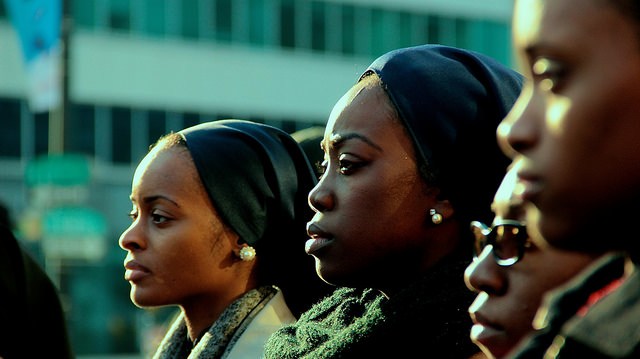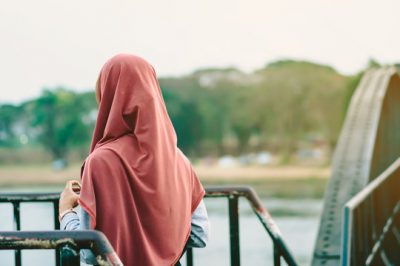Throughout history, Muslims have lived in oppressive and discriminatory conditions at one time or another.
In the early days of Islam and the Prophet Mohammad (PBUH), Muslims were mostly taunted and discriminated against, and often the target of harassment.
However, when Muslims were forced to engage in their first battle, the battle of Badr, many things were realized.
The Quraish were many in number, but the Muslims were few.
The Meccan army was heavily armed, and the Muslims were not.
Terrains were more favorable for the Quraish as the ground was solid clay and the Muslims being further from the stream were faced with sandy ground thus making movement difficult.
Perhaps the hardest thing was in terms of matters of the heart, as many Muslims were fighting against their own family members who were part of the Meccan army!
Can you imagine having to defend yourself in a battle against one of your own family members?
However, as stated, many things were learned, the most important being that Allah does help those who call upon Him in times of need.
Allah SWT protected and assisted the Muslims in many ways and victory was ultimately theirs.
This famous battle illustrates how a small group of Muslims can overcome tyrannical attacks and hatred.
While we know there were causalities on both sides, those taken prisoner by the Muslims were treated with kindness.
In winning the battle of Badr, the Muslims also gained a new confidence, knowing that even if they were fewer in numbers, they were defending a righteous cause.
The Modern Context
While most Muslims are familiar with the battle of Badr, we can learn from it today given the increasingly hostile environment towards Muslims in the West.
Alhumdulilah, this is not a physical battle to the extent we must defend ourselves, like in the battle of Badr in combat, but we must defend our rights, protect our communities, be aware of the often changing socio-political environment, as well as be vigilant of those around us who feel empowered to do harm based upon the rhetoric of hate that has been very common in many Western countries.
We, as Muslims, need to follow the example of the Prophet Mohammad'(PBUH) and his small army of disciples who trusted in Allah, utilized fairness, strength of character, increased faith, and gained more confidence as an ummah.
We must not resort to hiding in fear, nor refrain from speaking out.
In fact, this is the time more than ever to increase our visibility, teach others about Islam, educate and petition city, state, and other political representatives when able, as well as reach out to others who have been suffering from oppression, brutality, and exploitation, such as our African American brothers and sisters and other people of color.
Their struggles and oppression have been going on for hundreds of years; ours are relatively new in the USA when compared to the horrors African American’s have had to endure.

We also need to collaborate with and support our Mexican brothers and sisters who are also being targeted.
We need to learn from other people’s struggles in order to develop strategic skills in dealing with harassment, oppression, and even personal attacks on ourselves, our families, friends, or Masjids.
From a psychological standpoint, this can and will take many out of their comfort zone.
However, if we revisit the battle of Badr, we can be sure that some of the Muslims who were defending themselves against the Meccan army were not in their comfort zone.
However, they loved and trusted in Allah, the Prophet (PBUH), and had the comradery of each other.
They mustered the courage to win a battle when it appeared that all odds were against them.
As this is a mostly psychological battle in which we are being denied rights, threatened with certain things, and sometimes personally attacked, we need to develop skills which will help us cope with the current and forthcoming socio-political conditions.
Pages: 1 2

